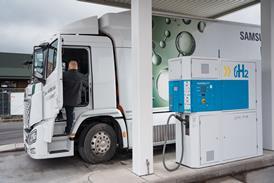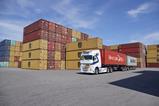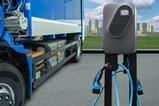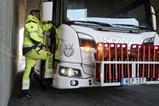Schneider National, a provider of transportation, intermodal, and logistics services, has completed work on an electric charging depot at its South El Monte Intermodal Operations Centre in Southern California.
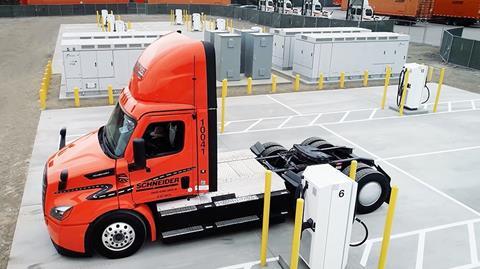
The new depot will serve as the power hub for Schneider’s Battery electric truck (BET) fleet, which is set to include nearly 100 Freightliner eCascadias by the end of the year, making it one of the largest zero-emission fleets in North America. The charging site boasts 16 350kW dual-corded dispensers, allowing the carrier to charge 32 trucks simultaneously.
Mark Rourke, President and CEO of Schneider, expressed the company’s commitment to taking the lead in sustainable transportation by constructing their own charging depot. Rourke stated, “It was important to develop onsite charging because it is the most efficient solution to power our growing electric fleet. With the infrastructure deficiency, we found that we needed to collaborate with a wide array of experts to see our vision come to fruition.”
Situated in the heart of the metro Los Angeles area and conveniently located near major highways, Schneider’s South El Monte facility enjoys proximity to a high concentration of customers within a 50-mile radius. The company has already initiated delivery operations for Frito-Lay North America and Goodyear using the new eCascadia fleet this year, in support of each company’s supply chain sustainability goals. With an approximate range of 220 miles, the eCascadias offer reliable and emission-free transportation.
The funding for Schneider’s South El Monte site came through the Joint electric truck Scaling Initiative (JETSI), a project backed by state and local agencies aimed at increasing the number of zero-emission heavy-duty trucks on the road. In collaboration with sustainably-minded companies such as Black & Veatch, a clean transportation engineering and construction firm, Schneider successfully built the electric truck charging hub, ensuring an operationally efficient layout.
The JETSI project, which received $27 million in funding, marks the first battery electric truck project jointly financed by the California Air Resources Board and the California Energy Commission. Additional financial support was provided by the South Coast Air Quality Management District, Mobile Source Air Pollution Reduction Review Committee, the Port of Los Angeles, and Southern California Edison. This initiative is part of the broader California Climate Investments programme, an ambitious statewide effort that utilises cap-and-trade dollars to mitigate greenhouse gas emissions, stimulate economic growth, and enhance public health and the environment, particularly in disadvantaged communities.
Highlighting the importance of electric transportation for a sustainable future, Rourke added, “We know the future of sustainable transportation includes electric. That is why we invested and collaborated with stakeholders along the supply chain to work together to create this infrastructure and ultimately lower carbon emissions. This would not be possible without our funding and grant agencies.”
Of the 92 BETs in Schneider’s fleet, funding for 50 of them was made possible through JETSI. The remaining 42 trucks received funding from various sources, including the US Environmental Protection Agency’s FY18 Targeted Airshed Grant and the Hybrid and Zero-E


